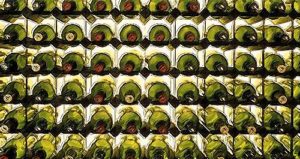 When I first came across organic wine it was frankly a victory of conviction over taste to drink it, but now there are some organic wines that can hold their own against most mid market contenders.
When I first came across organic wine it was frankly a victory of conviction over taste to drink it, but now there are some organic wines that can hold their own against most mid market contenders.
The sector has grown massively in the last twenty years. The latest figures are that there are now 5,186 organic vineyards with a further 150 in conversion from industrial to organic in the first quarter of 2016. With exports up 25% there has been a 10% increase in the total number of hectares under organic production between 2015 and 2016. Organic wine now represents 9% of the total French wine production, Amphore which organises a professional wine tasting awards every year just celebrated it’s twenty years anniversary this May, chief organiser Pierre Guigui says, “Twenty years ago there was 300 organic wine producers, now there is 16 times more.However at this rate it will be another two centuries before we convert all of the French wine industry.”
Is there such a thing as organic wine?
Now I have my issues with organic wine, I am not over sure a “pur et dur” organic wine exists in France. There are a few reasons for this doubt.
Firstly vineyards that have been used to produce industrial wine before have been saturated with pesticides, fungicides and fertilizers for decades. The short period of conversion to organic, while very painful for the owner does not in my opinion allow enough time for these chemicals to leach out.
Secondly the distance between an organic exploitation and an industrial one is actually quite small, simply three rows of vines. I drive through clouds of chemicals when I pass a sprayer, and here in the Corbieres we gave been known to have a bit of wind ever now again, chemicals like ideas know no borders.
So OK, you do what we did, you find a bit of land that has not been worked for years and had no neighbours, then you can pass directly to organic status, superb no problems with spray, no underlying chemicals but you still have to obey the orders that arrive from the Prefecture when their are outbreaks of diseases, sometimes there are organic alternatives, sometimes not.
Those niggles aside however organic wine production is a vast improvement on industrial wine production, it’s concentration on biodiversity, soil management and purity of production has both huge environmental impact and lowers the headache factor of over indulgence. It also allows wine producers to benefit from slightly higher prices to compensate for the lower production level. The key factor however is to find the balance between quality and value for money, with lower buying power organic wine needs to not price itself out of the mid market.

